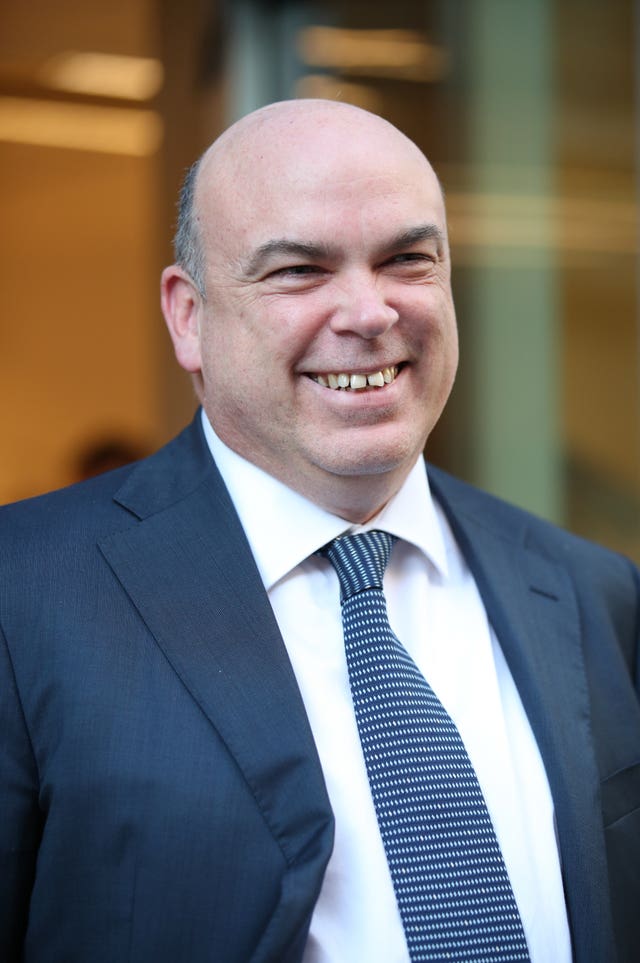
Ian Payne 4am - 7am
19 August 2024, 20:04

The tech tycoon rose to become one of Britain’s most successful entrepreneurs, before a massive lawsuit threatened his reputation.
British technology tycoon Mike Lynch – reportedly one of six tourists missing after a luxury yacht sank off the coast of Italy – founded software giant Autonomy in 1996, and made his name as one of Britain’s most influential entrepreneurs through the company.
He has been described at points as the Bill Gates of Britain, for founding the company which became one of the biggest enterprise software firms on the planet.
He seemed to live up to the moniker when he negotiated an 11 billion US dollar (£8.64 billion) sale of Autonomy to Silicon Valley pioneer Hewlett Packard (HP), which generated a more than 800 million US dollar windfall for him.

But the sale also kicked off a 13-year legal saga. It was only in June this year that Mr Lynch was cleared of charges alleging he orchestrated a fraud and conspiracy leading up to the deal, which turned into a costly albatross for HP.
He faced more than 20 years in US prison if convicted of the fraud and conspiracy allegations, and the Times reported that he spent 13 months under house arrest awaiting the trial that ended in June.
Being accused of a massive fraud represented a dramatic turn in fortunes for Mr Lynch.
In a 2015 radio interview, Mike Lynch said he was born in Ilford in east London.
He was brought up in Essex but has Irish heritage as the son of a nurse from Co Tipperary and a fireman from Co Cork and talked in the same interview of spending childhood summers in Carrick-On-Shannon and Tipperary where he has family.
He went to Cambridge University, and started his first business while he was studying for a PhD in signal processing and communications research.
The company, Lynett Systems, produced audio products for the music industry, including electronic synthesisers and samplers.
By 1991, he had started his second firm, Cambridge Neurodynamics, which specialised in fingerprint recognition.
Autonomy grew out of that company – but its success vastly overshadowed the previous two. The firm was a pioneer of business data analysis, using machine learning and what Mr Lynch called “adaptive pattern recognition”.
By 1998, it had floated in Brussels, and rode the technology boom around the turn of the millennium. In 2000 it gained listings on both the US Nasdaq exchange and later the London Stock Exchange.
When the tech bubble burst, Autonomy struggled, dropping out of the FTSE 100. But the company was already profitable, unlike many other tech firms at the time, and rode the storm.
Over the next decade, it continued to grow and served vast swathes of the businesses world, with clients reportedly including Shell, BMW, the UK Parliament and several US government departments.
Mr Lynch was made an OBE for services to enterprise in 2006. That same year, he was appointed to the board of the BBC, and was later elected to then-prime minister David Cameron’s council for science and technology in 2011.

He advised Mr Cameron on subjects including “the opportunities and risks of the development of artificial intelligence (AI) and the government’s role in the regulation of these technologies”.
It took more than a decade for Mr Lynch to clear his name, but the acquittal vindicated the 59-year-old father-of-two, who spent years fiercely denying he did anything wrong while painting HP as a technological train wreck.
In his first interview after being cleared, he told The Times newspaper: “I’d had to say goodbye to everything and everyone, because I didn’t know if I’d ever be coming back.”
Mr Lynch is among six tourists missing after the luxury yacht sank in bad weather off the coast of Sicily, sources said.
Four of the missing passengers are British and two are American, Italian news website la Repubblica stated.